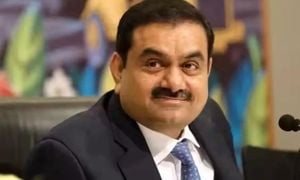The electoral race of Ireland is heating up as the nation approaches its general election this Friday, marked by significant troubles for the ruling party, Fine Gael. Under the leadership of Prime Minister Simon Harris, Fine Gael, which has held office since 2010, is facing declining support just days before the polls open. A recent Irish Times/Ipsos poll indicates the party has suffered a drop of six percentage points, bringing its current standing down to 19 percent. Another poll conducted by the Sunday Independent echoed this, showing Fine Gael sinking by four percent.
Once thought to navigate this electoral campaign smoothly alongside its coalition partner, Fianna Fáil, the tides have turned for Harris and his party. A campaign marred by missteps—including social media blunders—has started to undermine Fine Gael's authority. A glaring incident took place last Friday, when Harris was filmed dismissively walking away from Charlotte Fallon, a care worker voicing concerns about insufficient government support for the disability sector. The video went viral, racking up over 2.5 million views, much to Harris's detriment. His attempt to smooth over the situation with public apologies fell flat, leading to decreased public confidence.
The polling atmosphere sets Fine Gael behind Fianna Fáil, led by Micheál Martin, which has garnered 21 percent support, as well as Sinn Féin, currently at 20 percent. Sinn Féin—previously the frontrunner following their substantial lead at the last election—instead saw its support wane primarily due to contentious views on immigration issues amid rising asylum applications. Mary Lou McDonald, Sinn Féin's leader, has been vocal about pledging to initiate a referendum on Irish unification by 2030 if elected, setting the stage for fierce competition.
Social commentators are noting the atmosphere surrounding immigration as particularly tense amid skyrocketing asylum requests, which some blame for heightened housing crises resulting from insufficient affordable housing options. Harris's viral misstep may not just signal trouble for his party but also appears to signal shifting sentiments among the electorate, who express rising concerns about handling the influx of immigrants.
Making matters more precarious is the reality of past coalition dynamics. A returning coalition involves either Fianna Fáil or Fine Gael, but collaboration with Sinn Féin remains off the table, owing to its staunchly nationalist identity tied to its historical roots with the Irish Republican Army. This nationalist connection is still heavily weighted against Sinn Féin, compounding the challenge for McDonald’s party to gain significant traction.
Given these developments, many political analysts are leaning toward the possibility of Fine Gael and Fianna Fáil forging yet another coalition to keep Sinn Féin from gaining ground. The most recent poll shows the two centrist parties vying for more solid footing—both strategically distancing themselves from Sinn Féin’s ideology.
The situation is exacerbated by Fine Gael’s continuing struggle to articulate its policies effectively, as shown during their campaign launch when Harris made headlines when their slogan-bearing logo fell off its podium. It is these types of embarrassing incidents, coupled with gaffes like the one involving Fallon, leading experts to credit Harris's diminishing popularity. Professor Theresa Reidy from University College Cork noted, "It is the cumulative impact of all these blunders—not just the viral incident with Fallon—that is now pushing Fine Gael down the ranks. Harris’s awkward moment could shift the balance of power overall, especially when coalition talks begin."
Despite these polls reflecting dire prospects, political experts have suggested Sinn Féin is not out of the picture yet. The party’s previous success came on the back of Ireland’s economic struggles, particularly when housing costs reached alarming heights. While many voters are gravitating away from Sinn Féin, recent discussions around addressing their housing crisis indicate the party could still revive public support.
Voter sentiment is still heavily influenced by economic conditions. While living costs concern many, the current government’s ability to provide some financial relief places it slightly above the political fray for some voters. The Irish government, buoyed by corporate investments, has offered welfare payments, welfare credits, and assorted tax breaks to soften repercussions of cost-of-living inflation. Analysts indicate this temporary comfort encourages voters to stick with the status quo, with the government likened to pastoral stability amid global economic uncertainty.
So, with the final day of campaigning fast approaching, all eyes remain glued to performance at the polls. The voters’ decision will resonate not only for Fine Gael and its coalition partners but for Sinn Féin, too, as they hope to capitalize on their past economic insights to potentially steer the nation toward their vision of unification and broader nationalistic goals. How audiences receive these strategies remains to be seen, but tension hangs palpably and the results may very well redefine Ireland’s political map.



